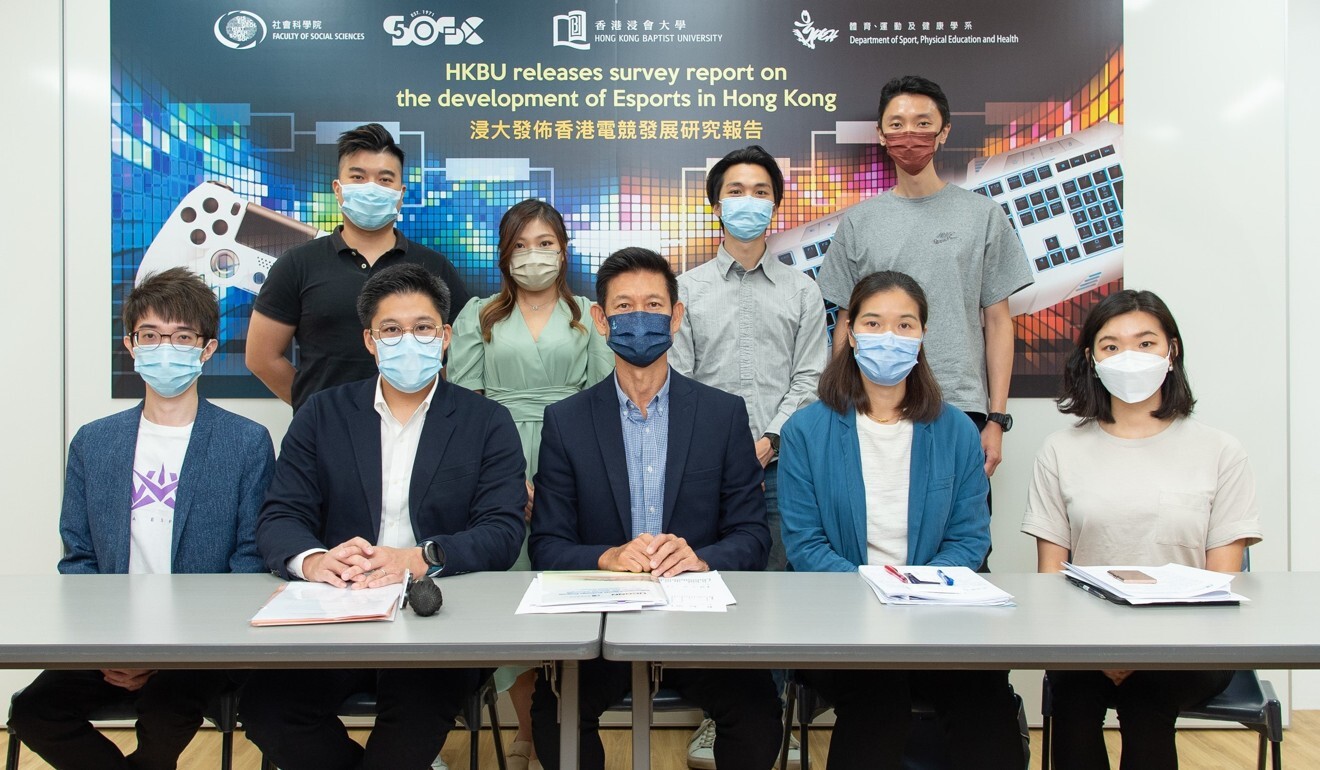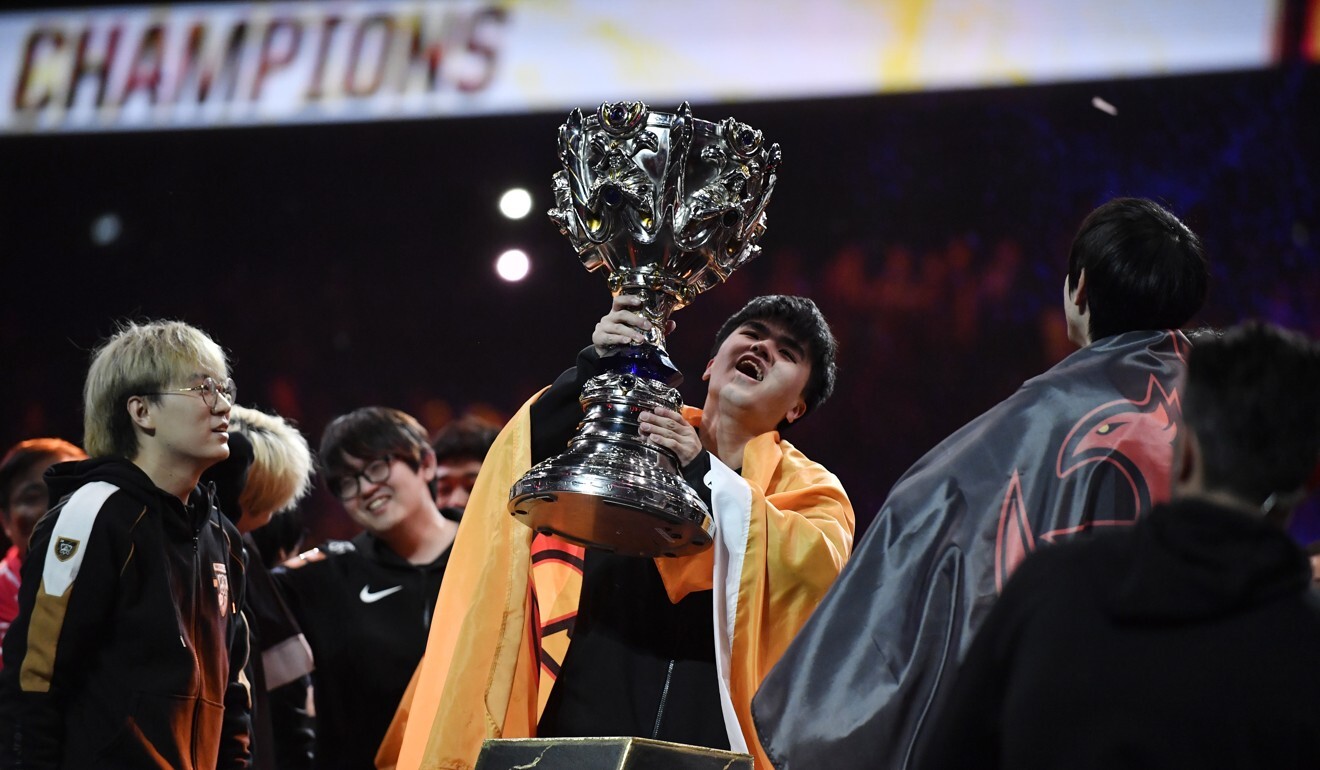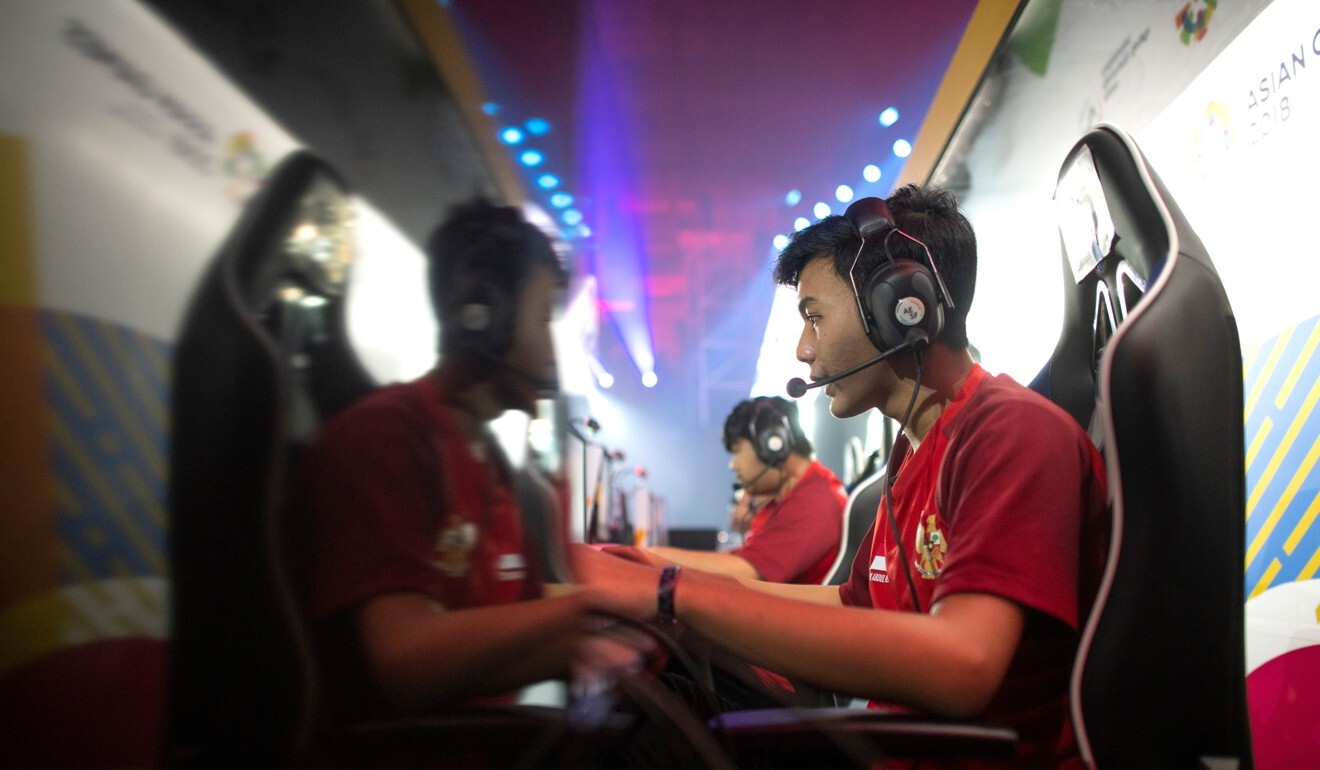
Hong Kong public wants to see government-backed esports development as researchers call for more funding
- More than 70 per cent of respondents support esports development in Hong Kong with sport to debut in 2022 Asian Games
- ‘The government should seize the opportunity to formulate policy,’ said Baptist University professor Chung
There is overwhelming support for the development of Hong Kong’s esports scene but more must be done for the sport’s exposure, resources and career prospects, according to a Baptist University survey published on Thursday.
Researchers found 72 per cent of respondents – from telephone surveys conducted on around 1,500 respondents aged 15 and over and questionnaire surveys on 2,100 of the city’s secondary and university students in 2020 – supported the development of esports in Hong Kong.
Some 69 per cent also said the government should subsidise such development, suggesting a need for more investment in infrastructure and resources of sport.

“Esports is a major global development trend in electronic technology, sports and entertainment industries, and the public in general holds a positive attitude towards its development,” said Professor Chung Pak-kwong, HKBU associate dean (development) of the Faculty of Social Sciences who led the research.
At the survey presentation, Chung reiterated the need to change the perception of the sport and to foster the younger generation’s talent. He called on the government to fund a domestic scene that is on the rise but losing its influence in Asia.

“The government should seize the opportunity to formulate a policy for the development of esports in Hong Kong, and deploy more resources to the upgrading of hardware as well as encouraging educational institutions to offer academic programmes related to the industry to cultivate esports professionals,” Chung said, highlighting a surprising finding that 69 per cent of secondary and 63 per cent of university student esport participants’ parents support their children’s esports endeavours.

Olympic organisers are set to partner with five other international sports bodies and game publishers for virtual events in sports such as baseball, cycling, rowing, sailing and motorsport.

Chung added: “On the nurturing of elite esports athletes, the Sports Federation and Olympic Committee of Hong Kong should review the governance structure and long-term development direction of the Esports Association of Hong Kong and consider its ... participation in schemes for training and competitions as well as a retirement protection plan for professional athletes, so young people will be confident in devoting themselves to the industry.”
Though there are indisputably promising signs, such as 90 per cent of respondents aged between 15-55 having heard of esports in general, there was also an obvious generational gap in the perception of esports in Hong Kong. Some 32 per cent of respondents aged 56-65 did not support esports development.
A number that would likely anger professional esports athletes is that 49 per cent of respondents equivalate esports with video games; while 54 per cent disagreed or strongly disagreed that esports is a legitimate sporting event, and 49 per cent did not agree that esports should be an official event at the Asian Games. Researchers concluded that there was a lack of general public understanding towards esports and its development in the region.

Former professional esports player Aaron Ho Ho-nam, who represented Hong Kong at the 2018 Asian Games in the Clash Royale game category, revealed he only turned professional after graduating from university. He hoped to see a clearer distinction between esports and gaming and more non-playing paths created in the industry.
Meanwhile, head coach of Hong Kong’s Fifa 21 esports team, William Ching Tim-lam, wants more outlets for devoted athletes who may not make it pro or are past the “golden age” for elite competition. Professional League of Legends player, Syreni Shek Hoi-yee of team PandaCute, also hoped to see more women competitors to show that “esports is not just for men” and that “the level between genders is closer in future”.

